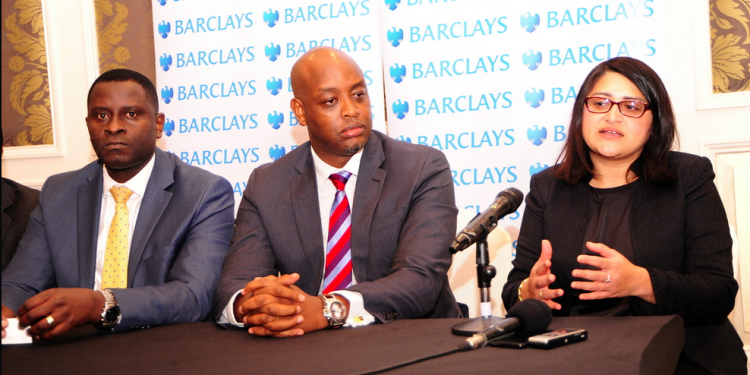Last week, National Treasury Secretary Henry Rotich presented the 2018/19 budget which provides a framework for the Ksh3 trillion spending plan.
According to Barclays Bank of Kenya Head of Markets Anthony Kirui, the revenue targets are ambitious. The country aims to broaden the tax base and streamline customs procedures as it seeks to raise domestic revenue to Ksh 1.9trn, almost 40% higher than what was achieved in FY16/17.
On the revenue side, there is concern that the projected revenue may not be realistic. Given that the indicated revenue enhancement initiatives are not new as some of them have been in place for the last five years. In 2017/18, the deficit target was originally 6.1% of GDP and then revised upward in the supplementary budget to 7.6% of GDP.
The budget will be largely financed by tax increases some critics feel is irresponsible while providing a quick fix to the widening taxation base. Sentiments echoed from the Barclays Bank Demystifying the 2018 National Budget’ session on Monday.
“Taxation is supposed to be applied in a responsible manner, in the sense that we either widen the taxation base or focus on areas with a lot of spillage and caps. I thought we would look at the customs duty that has all along been exempted, which does not benefit the common mwananchi.” Antony Mulisa Regional Head of Treasury Barclays Bank Africa Group Limited
“Government was looking a quick fix, they should have ensured efficiencies in collection of tax, cutting on wastages and dealing with the corruption and graft issues”. Peter Mungai Head of Tax Barclays Bank Kenya
“The 2018/19 budget has provided incentives such as cut the cost of energy, incentives offered under the Special Economic Zones (SEZ) Act and comprehensive housing package that will incentivize the private sector in the construction of low cost housing. While they are not balanced they will ease over the medium time.” Samantha Singh Africa Strategist Barclays Africa Group.
PPP (Public Private Partnerships)
Public private partnership projects in Kenya are rated among the top 10 in sub-Saharan Africa. But the country still has issues with regards to lack of framework on the procurement processes. Public sector Investments in Africa by private sector is only at 15 per cent while the remaining 85 per cent is by governments. According Samantha Singh of Barclays Africa, government needs to step aside to allow growth.
Fiscal Deficit
Public debt across sub-Saharan Africa is rising due to frontier markets accessing global markets for funding. The budget reading last week sets a perfect example by gearing towards reducing deficit to 5.7 per cent from 7.2 per cent.
“While there have been talks about fiscal consolidation for a number of years since 2012, the government has missed its original fiscal deficit targets, policies need to focus on reducing the budget deficit. “ noted Samantha Singh.
“For every Ksh 10 raised Ksh 4 is geared towards debt servicing.” She adds.
The widening of the deficit comes from lower revenues and highly planned recurrent expenditure. The standby arrangement with IMF ends in September a possible extension will require the Kenyan government to show fiscal requirements.
“The implications of the deficit if not managed well will be push back investors with increased International pressure to seek assistance from IMF which provides stringent measures.” She concludes.
Measures in potential conflict with the Big 4 agenda
While they are revenue raising measures increasing tax rates while bring on board new taxes. However Businesses will have to take more costs while having less return available for their shareholders.
“Moving items from 0-rated to being tax exempted on items such as drugs and some food items will not facilitate with the UHC (universal health care) and Food security agendas. While in this case 0-rated claiming government owes you while VAT Exemptions one is not allowed to claim from the government thus pass it to the consumers. The objective is to deal with VAT refunds which currently stands at a tune of Ksh20 billion that the government owes.” Peter Mungai Head of Tax Barclays Bank Kenya.




